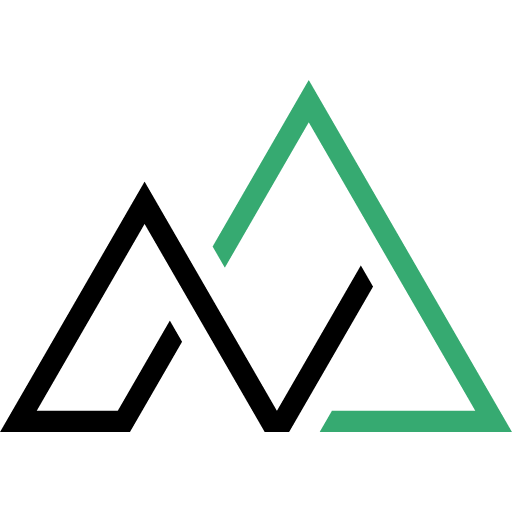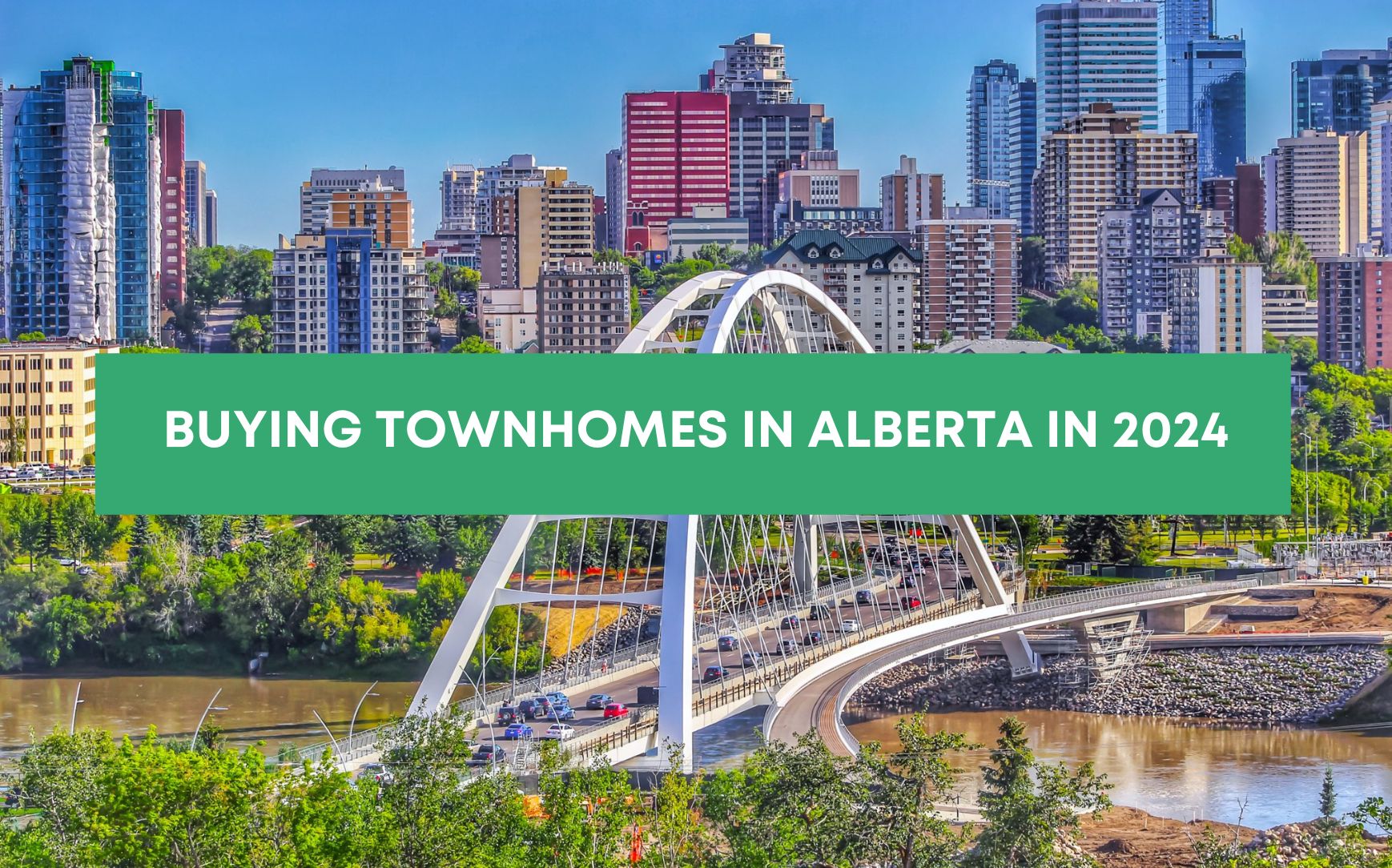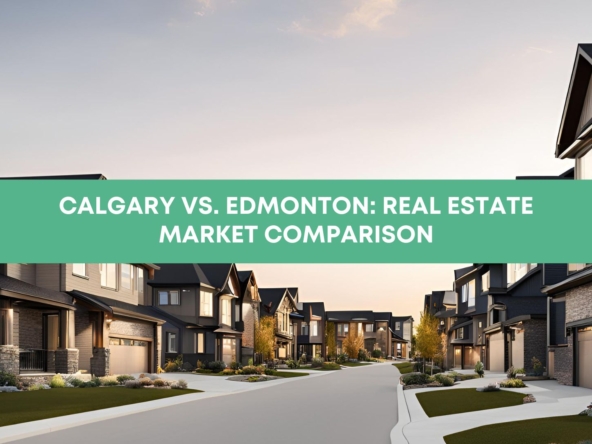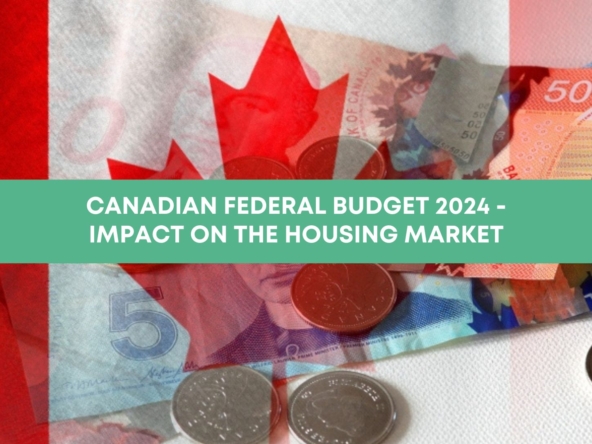Buying a townhomes in Alberta in 2024 requires careful planning and research. This comprehensive real estate guide will provide you with the latest trends, tips, and information on how to secure your dream townhome. From understanding the buying process to exploring the housing market dynamics, we’ve got you covered.

Key Takeaways:
- Consider townhomes for sale in Alberta in 2024 for a well-rounded investment opportunity.
- Exploreoptions in Calgary, a vibrant city with a diverse range of townhouses for sale.
- Keep an eye on home prices to ensure your purchase aligns with your budget and financial goals.
- Research your desired neighborhood’s amenities, schools, and proximity to essential services before making a decision.
- Partner with a reputable real estate agent to navigate the buying process and secure the best possible deal.
Steps to Buying Townhomes in Alberta in 2024
Buying a townhome is an exciting venture, and in Alberta, there are specific steps you need to take to make it a smooth process. From saving for a down payment to finding a reliable real estate agent, each step plays a crucial role in your journey to owning a townhome. Let’s explore the steps involved in buying townhomes in Alberta in 2024:
Saving for a Down Payment
One of the first steps to buying a townhome is saving for a down payment. It’s recommended to save at least 5% to 20% of the townhome’s purchase price. The larger your down payment, the lower your mortgage payments will be. Utilize a down payment calculator to determine how much you need to save and establish a realistic savings plan.
Building Credit Score
A good credit score is essential when applying for a mortgage. Lenders look at your credit history to assess your payment reliability. To build a strong credit score, make timely payments on your debts, keep your credit utilization ratio low, and avoid opening unnecessary credit accounts.
Checking Mortgage Affordability
It’s crucial to determine your mortgage affordability before beginning your townhome search. Use a mortgage affordability calculator to calculate your maximum mortgage amount based on your income, expenses, and debt levels. This will give you a budget to work with and help narrow down your options.
Locating a City & Neighborhood
Choosing the right city and neighborhood is key to finding your dream townhome. Research different cities in Alberta, such as Calgary or Edmonton, and consider factors like proximity to amenities, transportation options, school districts, and crime rates. Look for neighborhoods that align with your lifestyle and housing preferences.
Estimating Closing Costs
Before finalizing your townhome purchase, it’s essential to estimate the closing costs involved. These costs include legal fees, home inspections, land transfer taxes, and other miscellaneous expenses. Use a closing cost calculator provided by your real estate agent to get an accurate estimate.
Getting Mortgage Pre-Approval
Prior to making an offer on a townhome, it’s recommended to obtain mortgage pre-approval. This involves submitting your financial documents to a lender who will assess your creditworthiness and determine how much you can borrow. With a pre-approval letter in hand, you can confidently make offers on townhomes within your budget range.
Finding a Real Estate Agent
Working with a reputable real estate agent is invaluable when buying a townhome. They have extensive knowledge of the local market, can assist in finding suitable properties, and help negotiate the best deal. Look for agents with relevant experience and a track record of successful transactions in the areas you’re interested in.
Making Offers
When you find a townhome you love, it’s time to make an offer. Your real estate agent will guide you through this process, ensuring you include all necessary details, such as the purchase price, deposit amount, and any conditions you want to include. Be prepared for negotiations and be flexible in your approach.
Setting a Closing Date
Once your offer has been accepted, you’ll need to set a closing date for the purchase of your townhome. This date is when all legal documents are signed, closing costs are paid, and ownership of the property is transferred to you. Collaborate with your real estate agent, lawyer, and the seller to find a mutually convenient closing date.
Saving for a Down Payment

Before buying a townhome in Alberta in 2024, it’s essential to save for a down payment. The minimum down payment required depends on the property’s value and ranges from 5% to 20%. To determine how much you need to save, you can use a down payment calculator.
Additionally, there are other options you can consider to help you save for a down payment. One option is investing in a Tax-Free Savings Account (TFSA). TFSA investments allow you to grow your savings tax-free, helping you reach your down payment goal faster.
Another option is utilizing the RRSP Home Buyers’ Plan. This plan allows you to withdraw funds from your Registered Retirement Savings Plan (RRSP) tax-free for a down payment. You can withdraw up to $35,000 from your RRSP to put towards purchasing your townhome.
If your down payment is less than 20% of the purchase price, you may also need to obtain CMHC mortgage insurance. This insurance protects the lender in case you default on your mortgage. The premium is a percentage of the loan amount and can be added to your mortgage payments.
Pros and Cons of Saving Options for a Down Payment
| TFSA Investments | RRSP Home Buyers’ Plan | |
|---|---|---|
| Pros |
|
|
| Cons |
|
|
By saving for a down payment and exploring different options such as TFSA investments and the RRSP Home Buyers’ Plan, you can make your dream of owning a townhome in Alberta a reality. Remember to consider the costs associated with CMHC mortgage insurance if your down payment is less than 20%.
Building Credit Score & Income Stability

When it comes to buying a townhome, building a good credit score and maintaining income stability are key factors that lenders consider when evaluating your mortgage eligibility. It’s crucial to have a credit score of at least 600 and a stable income that can comfortably cover the monthly expenses of homeownership.
Having a solid credit score showcases your financial responsibility and reliability in managing debt. It demonstrates to lenders that you are likely to make timely mortgage payments. To build your credit score, make sure to:
- Pay all your bills, loans, and credit card balances on time.
- Keep your credit utilization ratio low (the amount of credit you’re using compared to your available credit limit).
- Avoid opening unnecessary credit accounts.
- Regularly check your credit report for errors and dispute any inaccuracies.
Alongside a good credit score, lenders also consider your income stability. They want to ensure that you’ll be able to consistently make mortgage payments. Stability in employment, a steady income, and a reliable source of income are essential. If you’re self-employed, you may need to provide additional documentation to demonstrate your financial security.
“Building a good credit score and maintaining income stability are crucial when buying a townhome.”
Moreover, passing the mortgage stress test is also important when buying a townhome. The mortgage stress test evaluates your financial stability by assessing your ability to make mortgage payments at a higher interest rate. It’s essential to show that you can withstand potential interest rate fluctuations.
Here’s an overview of how the mortgage stress test works:
| Mortgage Stress Test | Requirements |
|---|---|
| Interest Rate | Qualify at a higher interest rate (currently set at the Bank of Canada’s five-year benchmark rate or your contractual mortgage rate plus 2%, whichever is higher) |
| Debt Servicing Ratios | Gross Debt Service Ratio (GDS) – Your housing costs (mortgage payment, property taxes, heating expenses, and 50% of condo fees if applicable) cannot exceed a certain percentage of your income (typically 35%). Total Debt Service Ratio (TDS) – Your total debt obligations (including housing costs and other debts like credit cards, loans, etc.) should not exceed a certain percentage of your income (typically 42%). |
A successful mortgage stress test ensures that you have the financial stability to manage potential increases in mortgage payments.
By focusing on building a good credit score, maintaining income stability, and passing the mortgage stress test, you can enhance your chances of securing a mortgage for your dream townhome.
Checking Maximum Affordability
When buying a townhome, it’s crucial to determine your maximum affordability. This involves taking a close look at your gross income and understanding the two important ratios that lenders consider: the gross debt service ratio (GDS) and the total debt service ratio (TDS).
Your gross income is your total income before taxes and other deductions. This is an important factor that lenders use to assess your ability to make mortgage payments.
The gross debt service ratio (GDS) is the percentage of your gross income that goes towards housing-related expenses, including mortgage payments, property taxes, heating costs, and 50% of any condo fees. Lenders generally set a maximum GDS threshold of 32%.
The total debt service ratio (TDS) is the percentage of your gross income that goes towards all of your debt obligations, including housing expenses, loan payments, credit card payments, and other debts. Lenders typically set a maximum TDS threshold of 40%.
To get a clear picture of your maximum affordability, you can use a mortgage affordability calculator. This handy tool takes into account your gross income, GDS, and TDS ratios to estimate the maximum mortgage amount you can afford.
Example:
Your gross income: $80,000 per year
Gross debt service ratio (GDS) threshold: 32% ($80,000 x 0.32 = $25,600)
Total debt service ratio (TDS) threshold: 40% ($80,000 x 0.40 = $32,000)
Other debt obligations (e.g., credit card payments, car loans): $500 per month ($6,000 per year)
Estimated mortgage payments and housing expenses (GDS): $20,000 per year
Estimated total debt obligations (TDS): $26,000 per year
Maximum affordability: $25,600 (GDS) + $26,000 (TDS) = $51,600 per year
Based on the example above, your maximum affordability would be $51,600 per year. This means that you should aim for a townhome with a purchase price that falls within this range to ensure that your housing costs and other debt obligations are manageable within your gross income.
By checking your maximum affordability before starting your townhome search, you can focus on properties that fit comfortably within your budget and avoid overstretching your finances.
Locating a City & Neighbourhood
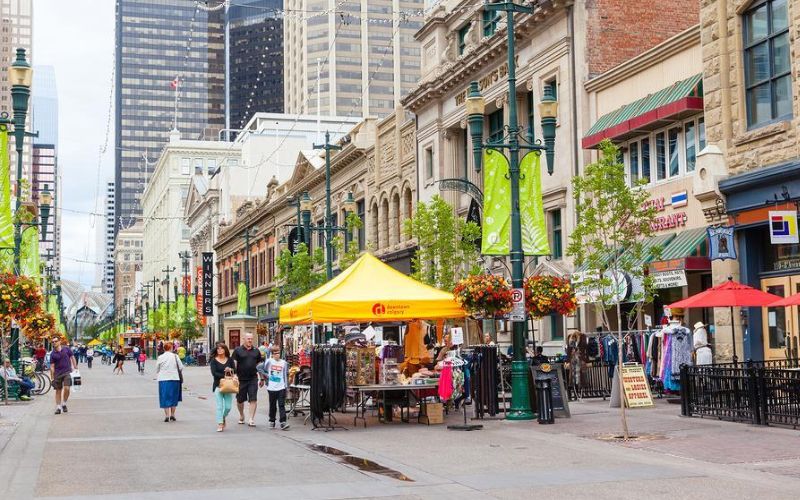
When it comes to buying townhomes in Alberta in 2024, one of the crucial decisions you’ll need to make is choosing the right city and neighbourhood that suits your needs and preferences. Two popular options in Alberta are Calgary and Edmonton, each with its own unique features, amenities, and housing market dynamics.
Calgary:
Known for its vibrant culture, stunning natural beauty, and strong economy, Calgary offers a desirable living experience. With a population of over 1.3 million, this city has a lot to offer in terms of job opportunities, education, and recreational activities. Calgary is home to a diverse range of neighbourhoods, each with its own charm and character.
Recommended neighbourhoods in Calgary:
- Beltline: This trendy downtown neighbourhood offers a vibrant urban lifestyle, with a wide range of restaurants, shops, and entertainment options. It has a walkability score of 96, making it a great choice for those who prefer to live in a walkable area.
- Mount Royal: Located close to downtown, Mount Royal is known for its upscale homes, tree-lined streets, and proximity to amenities. It offers a high-quality living experience with a median home price of $1.5 million.
- Inglewood: Considered one of the city’s oldest neighbourhoods, Inglewood combines historic charm with trendy shops, cafes, and galleries. It offers a mix of heritage homes and new developments, with a median home price of around $600,000.
Edmonton:
As the capital of Alberta, Edmonton is a thriving city with a population of over 1 million. Known for its world-class festivals, excellent education institutions, and diverse communities, Edmonton has plenty to offer for townhome buyers. The city is divided into several unique neighbourhoods, each with its own distinct character.
Recommended neighbourhoods in Edmonton:
- Strathcona: Located near the University of Alberta, Strathcona is a vibrant neighbourhood known for its historic buildings, trendy shops, and lively atmosphere. It offers a mix of townhomes and single-family homes, with a median home price of around $400,000.
- Glenora: This upscale neighbourhood is known for its beautiful tree-lined streets, large lots, and stately homes. It offers a peaceful living experience with easy access to downtown and a median home price of approximately $800,000.
- Oliver: Situated just west of downtown, Oliver is a bustling neighbourhood with a mix of residential, commercial, and entertainment options. It offers a range of townhomes, apartments, and condos, with a median home price of around $300,000.
Before making a decision, consider factors such as the walkability score, median home prices, amenities, transportation options, and proximity to schools or employment opportunities. Conducting thorough research and visiting potential neighbourhoods can help you make an informed choice that aligns with your lifestyle and preferences.
| City | Recommended Neighbourhoods | Walkability Score | Median Home Price |
|---|---|---|---|
| Calgary | Beltline | 96 | $1.5 million |
| Calgary | Mount Royal | N/A | $1.5 million |
| Calgary | Inglewood | N/A | $600,000 |
| Edmonton | Strathcona | N/A | $400,000 |
| Edmonton | Glenora | N/A | $800,000 |
| Edmonton | Oliver | N/A | $300,000 |
Estimating Closing Costs
As you prepare to buy a townhome in Alberta, it’s important to consider the additional expenses known as closing costs. These costs encompass various aspects of the purchase process and include lawyer fees, home inspections, and taxes. Estimating closing costs will help you budget effectively and ensure a smooth transaction.
One of the most significant components of closing costs is lawyer fees. Hiring a lawyer is crucial to ensure that all legal aspects of the transaction are handled properly. They will review the purchase agreement, conduct a title search, and facilitate the transfer of ownership. Lawyer fees can vary depending on the complexity of the transaction and the lawyer’s rates.
Home inspections are vital to identify any potential issues with the townhome before finalizing the purchase. While not mandatory, they provide valuable insights into the condition of the property. The cost of a home inspection can vary based on the size and location of the townhome.
You should also consider the taxes associated with buying a townhome. In Alberta, you will typically need to pay Goods and Services Tax (GST) on new construction townhomes. Additionally, you may be responsible for paying property transfer tax if applicable.
To estimate your closing costs accurately, you can use a closing cost calculator. These online tools take into account various factors, such as the purchase price, property type, and location. Additionally, your real estate agent can provide guidance and help you estimate closing costs based on their experience in the local market.
| Expense | Estimated Cost Range |
|---|---|
| Lawyer Fees | $1,000 – $2,500 |
| Home Inspections | $300 – $600 |
| Taxes | Varies based on property value |
It’s important to note that closing costs are separate from your down payment and cannot be added to your mortgage. Therefore, you will need to have sufficient cash available to cover these expenses.
By estimating closing costs in advance, you can budget effectively and ensure a seamless home buying process. Consult with your real estate agent and use a closing cost calculator to get a clear understanding of the expenses involved. Being well-prepared will help you navigate the final stages of the purchase and ultimately secure your dream townhome in Alberta.
Getting Mortgage Pre-Approval
Before starting your townhome search, it’s recommended to obtain mortgage pre-approval. This process involves getting a pre-approval letter from a lender, stating how much they are willing to lend you at a specific interest rate. Mortgage pre-approval is an important step in the home buying process as it helps you set a budget and shows sellers that you are a serious buyer.
When seeking mortgage pre-approval, you’ll need to provide documentation such as income verification, employment details, and proof of savings. Lenders will evaluate factors such as your credit score, debt-to-income ratio, and employment stability to determine your eligibility and the maximum loan amount.
During the pre-approval process, it’s also important to understand the interest rate being offered. The interest rate will affect your monthly mortgage payments and overall affordability. A mortgage broker can help you compare rates and find the best option for your financial situation.
Mortgage pre-approval also involves undergoing a mortgage stress test. This test assesses your ability to make mortgage payments in the event of an interest rate increase. By subjecting your finances to a higher interest rate, the stress test ensures you can handle potential future increases and avoid mortgage repayment difficulties.
Obtaining mortgage pre-approval early on in your townhome search gives you a clear understanding of your purchasing power and allows you to make informed decisions. It provides you with the confidence to negotiate with sellers and make competitive offers.
Expert Tip: When getting mortgage pre-approval, consider using a mortgage broker. A mortgage broker works with multiple lenders, helping you find the best interest rates and mortgage options available.
Finding a Reputable Real Estate Agent
When it comes to buying a townhome in Alberta, finding a reliable and experienced real estate agent is crucial. A skilled agent can guide you through the entire process, provide valuable market insights, and handle the necessary paperwork. Here are some factors to consider when choosing a real estate agent:
- Qualifications: Look for an agent who is licensed and has received proper training to handle real estate transactions. The agent should also be a member of a reputable real estate association.
- Experience in the Calgary and Edmonton housing markets: Alberta’s housing market is diverse, with specific dynamics in Calgary and Edmonton. An agent with experience in these markets will have a better understanding of the local trends, pricing, and neighborhood preferences.
- Track record: Ask the real estate agent about their track record in handling townhome purchases. A successful track record demonstrates their ability to negotiate deals, find suitable properties, and provide excellent service to their clients.
By finding a real estate agent who meets these criteria, you can ensure a smoother and more successful townhome buying experience in Alberta.
Making Offers

Once you’ve found a townhome that catches your eye, it’s time to make an offer. Making an offer is a crucial step in the buying process and involves submitting a written proposal to the seller. This proposal will include important details such as the purchase price, deposit amount, and any conditions you may have.
When making an offer, it’s important to be prepared and organized. Here are some key points to consider:
- Offer Price: Determine the price you are willing to pay for the townhome. This should be based on market research, the property’s condition, and your budget.
- Deposit: A deposit is a sum of money that shows your commitment to the purchase. It is typically held in trust until the sale is finalized. The deposit amount can vary but is typically around 5% of the purchase price.
- Proof of Financing: To strengthen your offer, include proof of financing. This can be in the form of a pre-approval letter from your lender or a statement showing you have the funds readily available.
- Conditional Offers: Depending on your situation, you may need to make the offer conditional on certain factors. This could include obtaining a satisfactory home inspection, securing financing, or selling your current property.
Your real estate agent will guide you through the offer process, ensuring all necessary paperwork is completed accurately and submitted on time. They will also help you negotiate with the seller to reach an agreement that is favorable for both parties.
Remember, making an offer is an exciting and important moment in the homebuying journey. Take your time to carefully consider your offer and consult with your real estate agent to ensure you’re making the best decision for your needs.
Setting a Closing Date

Once your offer has been accepted, it’s time to set a closing date for the purchase of your townhome. The closing date is the day when all necessary documents are signed, closing costs are paid, and you officially take possession of the property. This is a crucial step in the townhome buying process, as it marks the finalization of the sale and the transition from buyer to homeowner.
Setting the closing date typically involves negotiations between the buyer, seller, and their respective lawyers. It’s important to consider everyone’s availability and ensure all parties are ready to proceed. Your real estate agent will play a key role in facilitating these discussions and ensuring a smooth closing process.
Before the closing date, be sure to have the necessary funds readily available to cover the closing costs. These costs can include legal fees, title insurance, property taxes, and other associated expenses. It’s essential to budget for these costs and have the funds ready to avoid any delays or complications.
On the closing date, you will be required to sign various legal documents, including the purchase agreement, mortgage papers, and any other necessary contracts. It’s important to carefully review these documents and seek legal advice if needed to ensure you fully understand your rights and obligations as a homeowner.
Once the documents are signed, you will be required to pay the closing costs, which may include the down payment, legal fees, and other applicable fees. It’s crucial to have your payment method ready, whether it’s a cashier’s check or electronic transfer, to complete the transaction smoothly.
After the documents are signed and the closing costs are paid, you will officially take possession of the townhome. This is an exciting moment as you can now move into your new property and start making it your own.
Remember, setting a closing date requires coordination and preparation. By ensuring you have the necessary funds and documents ready, you can navigate the closing process with ease and officially become a homeowner.
Comparing Townhouse Markets in 2024: Edmonton vs Calgary
In 2024, the townhouse markets in Edmonton and Calgary present unique opportunities and characteristics for potential homebuyers.
Edmonton’s townhouses are known for their affordability and value, often appealing to first-time homebuyers or those seeking a balance between urban living and a sense of community. The average price of a townhouse in Edmonton remains relatively lower than in Calgary, providing an accessible entry point into the property market.
In contrast, Calgary’s townhouse market is characterized by a more diverse range of options, from luxury developments to mid-range properties. Calgary’s proximity to the Rocky Mountains and its slightly higher average income levels contribute to a market where buyers are often looking for amenities like upgraded finishes and community facilities.
Additionally, Calgary’s townhouse market tends to have a faster pace in terms of sales and price changes, reflecting the city’s dynamic economy and its appeal to a broader range of buyers, including professionals and downsizers. Both cities offer unique advantages for townhouse buyers in 2024, with Edmonton emphasizing affordability and value, and Calgary offering a wider range of lifestyle-oriented options.
Conclusion
Buying a townhome in Alberta in 2024 requires careful planning and understanding of the housing market dynamics. This real estate guide has provided you with the necessary steps, tips, and information to make an informed decision. By following the guidelines outlined in this guide, you can navigate the townhome buying process with confidence and secure your dream home in Alberta.
FAQ
Q: What are the steps to buying townhomes in Alberta in 2024?
The steps to buying a townhome in Alberta include saving for a down payment, building credit score, checking mortgage affordability, locating a city & neighborhood, estimating closing costs, getting mortgage pre-approval, finding a real estate agent, making offers, and setting a closing date.
Q: How can I save for a down payment on a townhome?
You can save for a down payment on a townhome by using a down payment calculator to determine how much you need to save, considering TFSA investments or the RRSP Home Buyers’ Plan, and potentially obtaining CMHC mortgage insurance if your down payment is less than 20%.
Q: What should I do to build a good credit score and income stability?
It’s important to build a good credit score by maintaining a credit score of at least 600 and ensuring income stability to cover the monthly expenses of homeownership. You may also need to pass the mortgage stress test and demonstrate additional financial security if you’re self-employed.
Q: How can I check my maximum affordability for a townhome?
To check your maximum affordability for a townhome, you need to consider your gross income, gross debt service ratio (GDS), and total debt service ratio (TDS). You can use a mortgage affordability calculator to estimate your maximum mortgage amount based on these factors.
Q: What factors should I consider when locating a city and neighborhood for a townhome?
When locating a city and neighborhood for a townhome, it’s important to consider factors such as walkability score, median home prices, recommended neighborhoods, and unique market dynamics specific to Calgary and Edmonton.
Q: How do I estimate the closing costs for a townhome?
You can estimate the closing costs for a townhome by considering expenses such as lawyer fees, home inspections, and taxes. You can use a closing cost calculator or consult with your real estate agent for a more accurate estimate.
Q: Why should I get mortgage pre-approval before buying a townhome?
Getting mortgage pre-approval before buying a townhome helps you set a budget, shows sellers that you’re a serious buyer, and provides clarity on the amount a lender is willing to lend you at a specific interest rate. It may involve income verification and undergoing a mortgage stress test.
Q: What is the process for making offers on a townhome?
Making offers on a townhome involves submitting a written proposal with details such as purchase price, deposit, and conditions. You may need to provide proof of financing and consider making conditional offers based on factors like home inspections or financing approval. Your real estate agent will assist you in negotiating and finalizing the offer.
Q: How do I set a closing date for the purchase of a townhome?
To set a closing date for the purchase of a townhome, negotiation between the buyer, seller, and their respective lawyers is typically required. The closing date is when you sign all necessary documents, pay the closing costs, and officially take possession of the property.
Q: What is better, and townhome or single family home?
The choice depends on your lifestyle, needs, and budget.
- Maintenance: Townhouses usually offer lower maintenance, often with HOAs handling exterior upkeep.
- Community: Townhouses provide a closer community feel, with shared spaces encouraging neighbor interactions.
- Cost: Generally, townhouses are more budget-friendly, appealing to first-time buyers or those with a tight budget.
- Privacy and Space: Single-family homes offer more privacy and space, with larger yards and fewer shared walls.
- Location: Townhouses are often near urban centers, while single-family homes are common in suburban or rural areas.
In summary, choose a townhouse for lower maintenance and a community lifestyle, or a single-family home for more privacy and space. Your priorities and lifestyle needs should guide your decision.
Q: What is the real estate market like in Calgary and Edmonton in 2024?
A: The real estate market in Calgary and Edmonton in 2024 is experiencing unique market dynamics, with a strong demand for housing, particularly in the townhouse and condo segments. The housing supply is struggling to keep up with the housing needs, making it a competitive market for homebuyers.
Q: Where can I find townhomes for sale in Calgary?
A: You can find townhomes for sale in Calgary through local real estate agents, online real estate platforms, and by visiting new home developments and pre-construction homes in the area.
Q: What are the current mortgage rates for purchasing a home in Alberta?
A: The current mortgage rates for purchasing a home in Alberta are influenced by factors such as the Bank of Canada’s benchmark interest rate, the state of the Canadian real estate market, and individual financial qualifications. It’s advisable to consult with a mortgage broker or financial institution to get the most accurate and updated rates.
Q: How do the townhomes in Calgary compare to the homes for sale in terms of square footage?
A: The townhomes in Calgary vary in square footage, often providing a more compact and efficient living space compared to standalone houses for sale. It’s essential to explore different townhome options to find one that meets your specific square footage requirements.
Q: What are some of the key factors driving the demand for housing in Calgary and Edmonton?
A: The demand for housing in Calgary and Edmonton is driven by various factors, including the influx of new residents, job opportunities, affordable rental options, and the appeal of homeownership in these vibrant Alberta cities.
Q: Are there any new townhomes for sale in Calgary in 2024?
A: Yes, there are new townhomes for sale in Calgary in 2024, as the real estate market continues to see the development of pre-construction homes and new housing projects to meet the demand for housing in the area.
Q: How does the current housing supply meet the housing needs in Calgary and Edmonton?
A: The current housing supply in Calgary and Edmonton is struggling to meet the housing needs, leading to a competitive market and higher demand for available properties. This has made the real estate market challenging for homebuyers, particularly in the townhouse and condo segments.
Q: What are some of the current trends in the Calgary and Edmonton real estate market for townhouses?
A: The Calgary and Edmonton real estate market for townhouses is experiencing an increased demand from first-time homebuyers, as well as a growing interest in affordable rental options and existing home sales. The market is also witnessing a focus on efficient use of space, leading to the development of more townhome communities.
Q: How can I find a reliable local real estate agent in Calgary or Edmonton?
A: You can find a reliable local real estate agent in Calgary or Edmonton by seeking recommendations from friends and family, researching online reviews, and contacting real estate professionals who have a strong understanding of the local market and can assist you in your property purchasing journey.
Q: What are some of the considerations for first-time home buyers looking to purchase a townhouse in Calgary or Edmonton?
A: First-time home buyers looking to purchase a townhouse in Calgary or Edmonton should consider factors such as their budget, mortgage approval process, condominium fees, proximity to amenities, and the overall suitability of the townhouse for their current and future housing needs.
